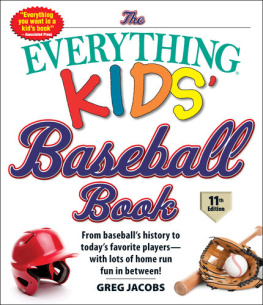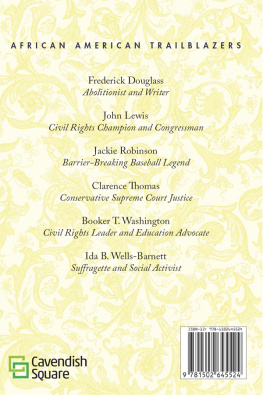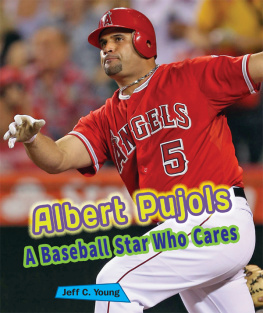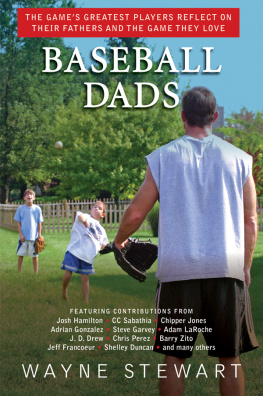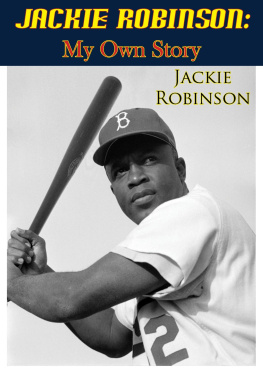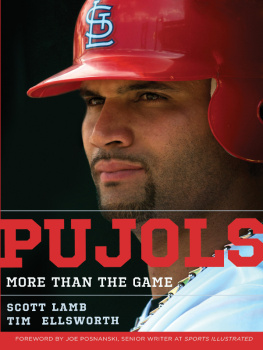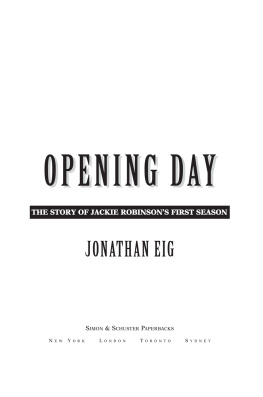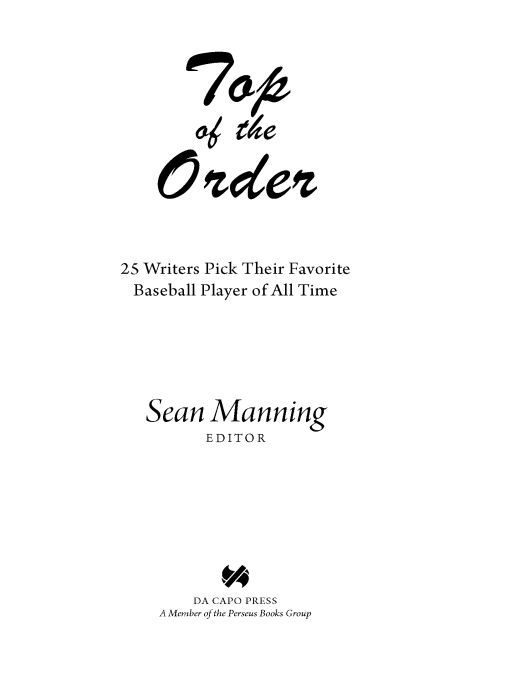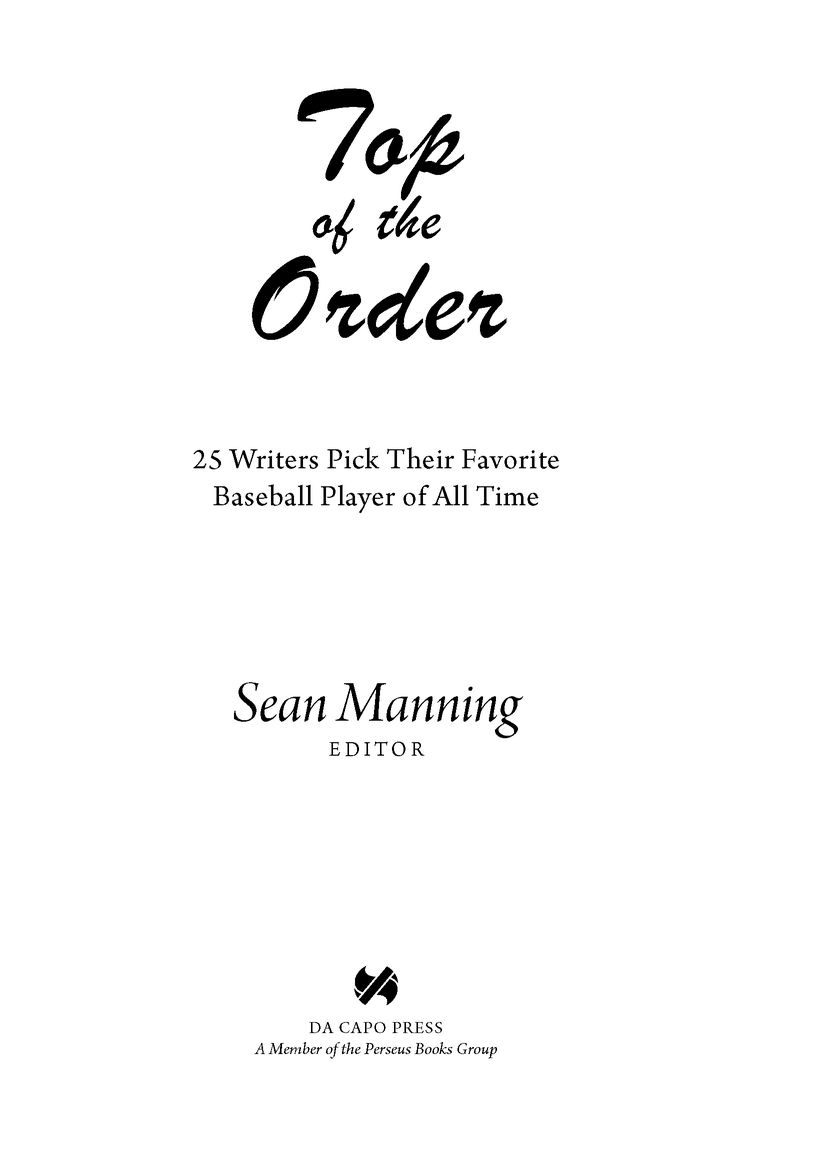Table of Contents
FOREWORD
W. P. Kinsella
Ive seen many baseball superstars in whom I have no interest at all; I dont get excited about their performance, no matter how spectacular. Some Im simply indifferent to; some I actively dislike. But why? There have been marginal players Ive admired, journeymen I looked forward to seeing, sometimes driving a few hundred miles out of my way to attend a game of theirs. But why?
I cant imagine being able to expound on one players merits for a whole essay. If I did, that player would be Curt Flood. He had to be one of the bravest men who ever lived. At the end of a marvelous career, the three-time All-Star took on the stodgy and often mean-spirited baseball establishment, challenging the reserve clause that tied a player to one team for life. In a most iffy decision the Supreme Court found in favor of Major League Baseball, but Flood had put the wheels of change in motion, and the clause was struck down in 1975, opening the doors of free agency and allowing baseball players to earn whatever the market would bear.
It seems that being a fan or nonfan of a player is completely subjective. For instance, Ive always considered that Willie McGee and Mickey Rivers were two sides of the same coin. Both were All-Star players, both had a shambling gait that could be elevated to blinding speed. Rivers spoke in malapropisms, some of them intentional; McGee was more articulate and probably the better of the two players. However, while I loved McGee, I never cared for Rivers. It probably had to do with McGee playing for my National League favorites, the Cardinals, while Rivers spent time with the hated Yankees and the uninteresting Texas Rangers.
My introduction to baseball was odd to say the least. My dad had played some minor-league baseball in Florida and California, probably only in commercial leagues in the 1920s. He was never terribly forthcoming about where he actually played, though his friends confirmed that he was a very good third baseman and a strong left-handed hitter. My dad was near forty when I was born, and I never saw him play ball. Through a series of somewhat strange events, too complicated to get into, he had ended up in Alberta, Canada, where I was born, settled on a stony and worthless quarter-section of farmland to wait out the Great Depression. On the rare occasions when he got to the nearest city, Edmonton, he would return with a copy of the St. Louis Sporting News, which I believe cost 5, and I remember him reading me articles about big-league ballplayers and explaining box scores to me, long before I started school.
The first players who interested me came from the black-and-white pages of the Sporting News. I had to provide my own color. And I did, for I became a fan of two colorful teams: the Cincinnati Reds and the St. Louis Cardinals. I have always loved bright colors; in fact, Im wearing a cardinal-red corduroy shirt as I sit typing this essay. I imagined the Cincinnati players in red socks, red caps, and with red lettering on their shirts. I loved the perky cardinal perched on a bat on the St. Louis uniforms.
It was names that captured my imagination: the exotic and mysterious Cincinnati, their pitchers Bucky Walters and Johnny Vander Meer. I had only the vaguest idea of what a no-hit game was, but my father assured me that Vander Meers back-to-back no-hitters was a record that would never be equaled or surpassed. Then there was Ewell The Whip Blackwell, what an awe-inspiring name, and a story about him was accompanied in the Sporting News by a very bad black-and-white photo, showing his unique sidearm delivery. The first position player I admired was Grady Hatton, an average third baseman with a .254 lifetime average over a twelve-year major-league career. I became a fan because I loved his name, which my dad assured me made him as Irish as we were.
By the time I was ten we had moved to Edmonton, and I rushed to the box scores every day in the Edmonton Journal to see how my pitching and hitting heroes had fared. The first World Series I remember clearly was 1946. Here were the Red Birds against the Red Sox; I chose the Cardinals. There was no TV, and the World Series games were the only baseball broadcasts we received on our battery radio in back-country Alberta. I chose pitcher Harry The Cat Brecheen as my favorite, mainly because of his name and my fondness for cats. I also loved the unusualness of the name Enos Country Slaughter, especially after he scored from first base on a single with the winning run in Game Seven. I was never a fan of Ted Williams, though he was a great player.
In 1948 I became an instant fan of Lou Boudreau the day he got four hits, including two home runs, as Cleveland beat Williams and the Red Sox 8-3 in a one-game playoff for the American League pennant. We didnt get a radio broadcast, but got a radio summary at the end of each inning as the information came in over the wires.
It would be twenty years before I saw a major-league game in person, so to that point all my favorites were chosen from newspapers, magazines, World Series radio broadcasts, and, after the mid-50s, World Series TV (though until the mid-60s TV quality was quite inferior).
I remember Don Larsens no-hitter in 1956. We didnt yet have a TV, so I rode a streetcar far across the city to the University of Alberta student union, where there was a grainy black-and-white TV that reran the game late in the evening. The reception was so bad that the radio broadcast Id listened to earlier in the day was superior, except for the jubilation of the players after the no-hitter was accomplished.
Except for that brief moment, I was never a Yankees fan. Their uniforms werent colorful; they bought their pennants. One of the hardest adjustments I had to make was when Charlie Finley dismantled the Oakland As: Ungrateful fans had failed to fill the stadium after Finley brought them world championships, and he shipped my favorite Reggie Jackson off to the Yankees, where I could never cheer for him again.
A player can go from hero to pariah in an instant. I remember writing of Robbie Alomar that he floated like an angel above second base while making an astonishing catch in the World Series against Philadelphia. I lost complete respect for Alomar the day he spit in the face of the fine umpire John Hirschbeck. That one action cost Alomar thousands of fans and killed any chance he ever had of being a Hall of Famer.
Gene Tenace was another favorite of mine because he was a clutch hitter and an intelligent and gritty catcher, even though he had only a .241 lifetime average. I was thrilled in 2008 to see Cito Gaston (one of my favorite managers, along with Dick Williams) bring Tenace in as hitting coach with Toronto, where Im sure he doesnt put up with many .241 hitters.
I admired Finleys willingness to take chances; he brought a rather stodgy game kicking and screaming into modern times. He is responsible for the designated-hitter rule, which I think is the best thing ever and should be adopted by the National League. He dressed his players in glorious color, which had been so lacking in baseball and which has since been adopted by many teams in both leagues. Even though he was known as Cheap Charlie and many of his innovations failed, he paid his players to grow mustaches. (Remember Rollie Fingers? I think that mustache made his career.) As an owner Finley left a lasting legacy and someday that legacy will be recognized and hell be in the Hall of Fame.


